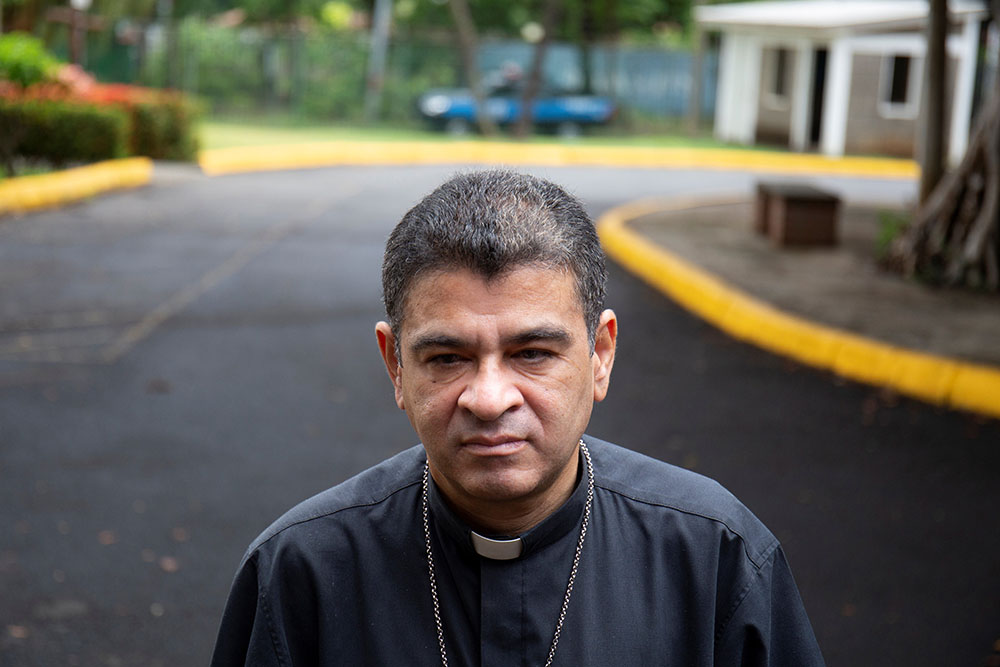
PROSPECT HEIGHTS — Following the latest round of arrests of Catholic leaders in Nicaragua and the continued imprisonment of Bishop Rolando Álvarez of Matagalpa, Archbishop Thomas Wenski of Miami has said the dictatorship of President Daniel Ortega has gone “off the rails.”
“It’s a deteriorating situation where the government is persecuting the Church, and it’s hard to see what the end game of this is,” Archbishop Wenski said of Nicaragua in a Jan. 2 television interview with WPLG Local 10 News, adding that “this is a dictatorship, to be sure, it’s also one that’s off the rails.”
Archbishop Wenski has close ties to Nicaragua, with South Florida’s proximity to the Central American nation, and the fact that Miami has the largest Nicaraguan population of any American city. Last year, a number of political prisoners released by the Nicaraguan government and flown to the U.S. settled in Miami, with Archbishop Wenski offering them long-term housing at a local seminary.
The latest news out of Nicaragua came in the final weeks of 2023, when the Ortega regime heightened its crackdown on local Catholic leaders. Bishop Isidoro del Carmen Mora Ortega of Siuna was arrested on his way to celebrate a local confirmation on Dec. 20. According to local reports, the arrest came the day after he said at a Mass that the nation’s Catholic bishops’ conference is united in prayer for Bishop Álvarez.
In addition to Bishop Mora, 15 priests and two seminarians were arrested in the final days of 2023.
On Jan. 2, the U.S. State Department issued a statement condemning the Ortega regime.
“In addition to Bishop Álvarez, many religious leaders remain unjustly detained in Nicaragua, including fellow Bishop Isidoro Mora and several priests,” the statement reads. “The Ortega-Murillo regime continues to impose severe restrictions on religious communities and deny Nicaraguan citizens the ability to freely practice their religions and express their beliefs.”
On Bishop Álvarez, the statement notes that he has been “unjustly incarcerated” for more than 500 days. It adds that during that time the Nicaraguan authorities have kept him in isolation and blocked any independent evaluation of the conditions of his imprisonment. It also said staged photographs and videos of Bishop Álvarez published by the Nicaraguan government “only increase concerns about his well-being.”
“We once again call on the Nicaraguan government to release Bishop Rolando Álvarez immediately and without conditions,” the State Department said.
Photographs were recently published of Bishop Álvarez receiving a medical checkup. Commenting on the photos, Nicaraguan Auxiliary Bishop Silvio José Báez of Managua — who is currently in Miami, where he has been since he was exiled in 2019 — said that no one is fooled by the images into believing Bishop Álvarez is being treated humanely.
“May the dictatorship not think it cleans its crime by staging Bishop Rolando Álvarez in a new cynical and disrespectful setup,” Bishop Báez said in a statement. “Understand that no one believes them! The only just thing is for Bishop Álvarez to be released, along with Bishop I. Mora, seminarians, and priests.”
The Nicaraguan government has not said anything about Bishop Álvarez or the other arrests.
Last February, Bishop Álvarez was sentenced to 26 years in prison by the Nicaraguan government. He also incurred a loss of citizenship and was given a large fine on charges of treason, undermining national integrity, and spreading false news. The charges are one of many actions the Ortega regime has taken against Catholics since 2018, when widespread protests against the government broke out.
Archbishop Wenski also spoke about Nicaragua in his homily at a Christmas Mass, listing it with a group of countries that seem without hope as people continue to flee.
“Haiti, Cuba, Venezuela, and Nicaragua, countries near to us — and certainly, dear to many of us — are seemingly without hope as hundreds of thousands flee,” Archbishop Wenski said.
